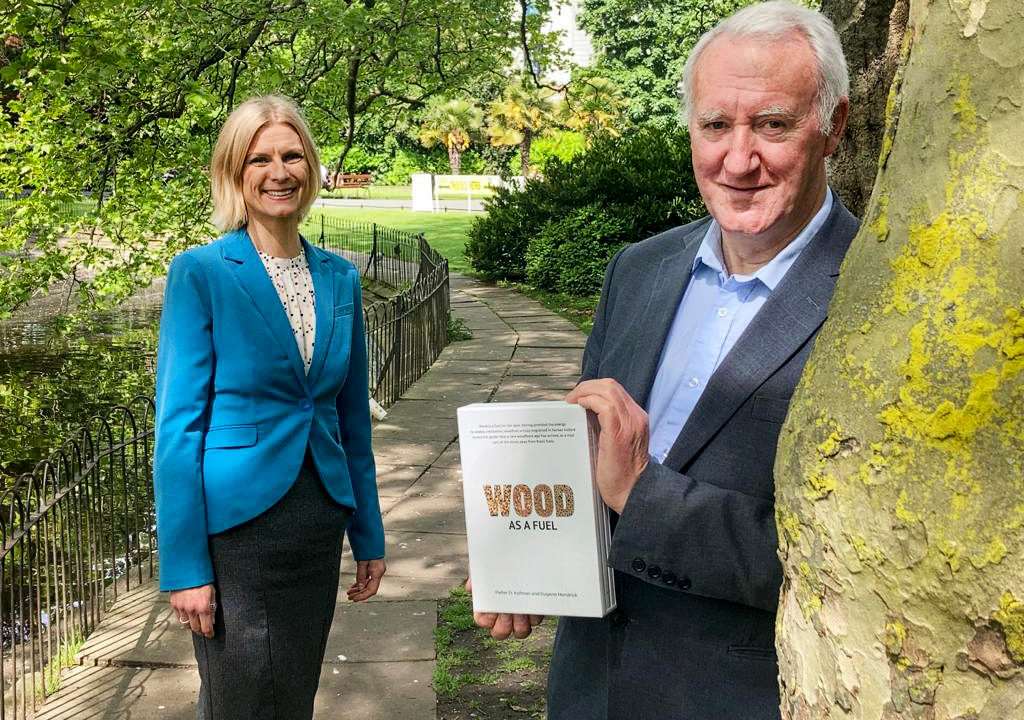Minister of State at the Department of Agriculture, Food and the Marine (DAFM), with responsibility for forestry, Pippa Hackett, has launched a new publication called ‘Wood as a Fuel’ which gives comprehensive information about wood fuels.
The book, by Pieter D. Kofman and Eugene Hendrick, is a wide ranging, comprehensive publication covering all aspects of wood fuels, based on the latest information and evidence.
Its five volumes describe the main wood fuels which are firewood, woodchip and wood pellets.
Detailed information on wood fuels
Detailed information on raw material sources, seasoning, drying and production processes, transportation and quality issues are described for each of the fuels.
Many examples of ways to improve product quality and efficiency are provided, designed to enable readers to produce and use high quality wood fuels.
Welcoming the publication, which was part funded by her department, Minister Hackett stated: “Wood is of significant cultural importance in Irish history, and thousands of homes have relied on wood as a fuel to heat their homes for generations.
“The books explain the importance of seasoning wood properly before burning, and this is something which is particularly important now as our country develops its clean air strategy, and when sustainably sourced and used, forest biomass has an important role in displacing fossil fuel.
“These books provide detailed information on raw material sources, production processes, transportation and quality issues are described for each of the fuels,” the minister added.
History of wood as fuel
The books outline the history of wood fuels, describe what wood is, and why it makes such a useful and versatile fuel.
The final concluding volume outlines the latest practice and evidence about wood combustion and modern uses of wood fuel, and how their sustainable use contributes to tackling climate change.
Pieter D. Kofman said: “In Wood as a Fuel we have aimed to present wood fuels and their use in a clear and easily understood way, so growers and contractors supplying forest biomass for processing, and those manufacturing bioenergy products, can do so in an efficient, cost effective and sustainable way.
“As authors we have also placed an emphasis on the use of ISO solid biofuels standards, as these now offer an internationally agreed way to trade and transact most of the wood fuel types on the market.”
His co-author, Eugene Hendrick said: “Bioenergy, and wood fuels in particular, when specified according to ISO standards and sustainably sourced, provide a recognised way to tackle the climate emergency through displacement of fossil fuels.
“Efficient and clean ways to combust forest biomass are key, to maximise the economic return and deal with air quality.”
